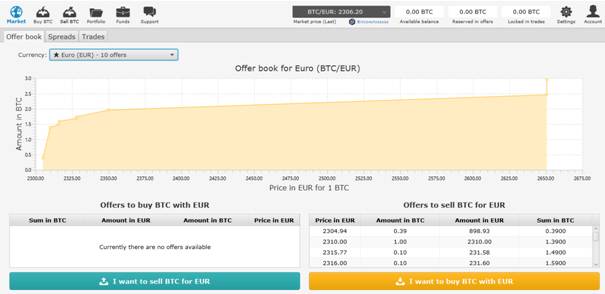2023-3-30 19:31 |
Members of the European Parliament recently voted in favor of new legislation to limit anonymous crypto transfers to 1000 euros.
Three new draft bills include the so-called EU single rulebook that guides the use of anonymous instruments like crypto assets and the 6th Anti-Money Laundering Directive to ensure access by authorities to reliable information. The third text deals with establishing a bloc-wide Anti-Money Laundering Authority used in the upcoming Markets-in-Crypto-Assets bill.
Anonymous Crypto Transfers Face Limits Under Draft BillThe first adopted text compels crypto asset managers to identify their customers’ identities, assets, and ownership. They must send information about associated money laundering and terrorist financing risks to a central register. Under the draft law, anonymous crypto transfers must be limited to 1000 euros.
The second text argues that each EU member-state must establish a financial intelligence unit to “combat money laundering and terrorist financing.”
In the third text, lawmakers voted to establish a new supervisory and investigative money laundering authority to supervise entities with a high residual risk. The Anti Money Laundering Authority must directly “directly” supervise the “riskiest crypto asset service providers” operating in the 27-member EU bloc for the first time, according to MEP Emil Radev.
He added that the AMLA must cooperate with national authorities, with each body’s roles clearly defined.
Members of Parliament also favor tracking ownership of high-value assets like yachts, airplanes, and motor vehicles worth over 200,000 euros.
A plenary sitting of the European Parliament will start negotiations on the bills in April 2023.
Following multiple delays, the upcoming MiCA bill will be voted on at a plenary session of the European Parliament on April 18, 2023.
New Bills Will Complement Upcoming MiCA BillThe three newly-adopted texts will likely complement the MiCA bill. MiCA introduces a new legislative framework for cryptocurrency businesses, including a licensing scheme and compulsory disclosures.
The MiCA bill also incorporates The Transfer Funds Regulation, which brought the Financial Action Task Force’s Travel Rule to crypto in mid-2022.
FATF is a global anti-money laundering watchdog that introduced the Travel Rule for banks to share information on fund movements. It recently called for greater enforcement of the Travel Rule for crypto assets at a plenary session in Paris.
Under MiCA, every transaction involving a crypto asset service provider registered in the EU must comply with the Travel Rule, irrespective of the amount transferred. EU member state France already applies this rule.
MiCA defines crypto asset service providers as agents allowing crypto funds to transfer from an originator to a beneficiary.
CASPs must send originator and beneficiary information to the AMLA described in the second adopted text. The type and volume of information depend on the amount transferred and whether the CASP suspects foul play. They must ask a self-custodial wallet user who transfers more than 1000 euros if he is the wallet’s owner.
Alice Nawfal, COO of Notabene, a company that helps crypto firms comply with the Travel Rule, told BeInCrypto that she was impressed with EU lawmakers’ work on the Travel Rule in MiCA.
“They were open and moved quickly,” she said. The new MiCA bill also provides industry participants within the EU a grace period.
She also suggested that U.S. regulators could use MiCA to draft an American crypto playbook.
“The sentiment coming – the industry wants an effective regulatory regime,” Nawfal said.
For Be[In]Crypto’s latest Bitcoin (BTC) analysis, click here.
The post New EU Bill Introduces 1,000 Euro Limit on Anonymous Crypto Transfers appeared first on BeInCrypto.
origin »Bitcoin price in Telegram @btc_price_every_hour
Emerald Crypto (EMD) на Currencies.ru
|
|
















